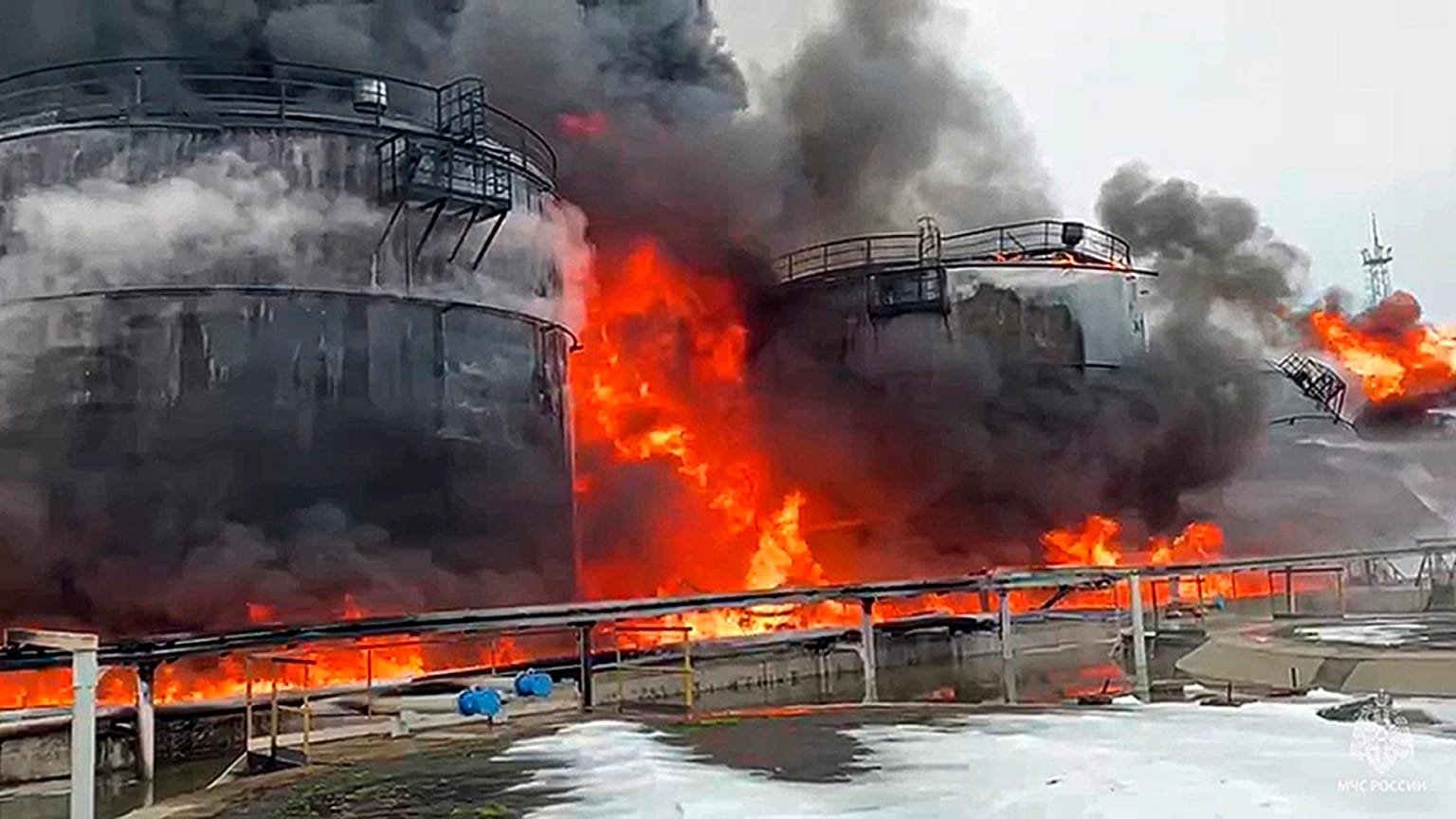
 Ukraine has stepped up its attacks on Russian oil refineries and energy infrastructure, carrying out more than 30 strikes since early August in a bid to undermine Moscows financial capacity to sustain its war. Russia, the worlds third-largest producer and second-largest exporter of crude oil, relies heavily on oil and gas revenues, which made up around 30 percent of its 2024 budget, according to the Oxford Institute for Energy Studies. Experts say the strikes have had a notable effect. Kyivs attacks have so far been quite effective, with Russian refinery production rates having dropped around 10 percent, said Homayoun Falakshahi, an analyst at energy research group Kpler. In response to the disruptions and the risk of fuel shortages, Moscow has restricted petroleum product exports until the end of the year and extended its ban on gasoline exports. Rystad Energy analyst Janiv Shah noted that Russias refinery production had fallen to an average of 4.9 million barrels per day by mid-Septemberaround 400,000 barrels fewer than the first half of 2025. The shortage of refined products has widened the price gap between Russian crude and refined oil, and Russian consumers are feeling the impact. As of September 1, retail gasoline prices were 6.7 percent higher than at the end of 2024, according to the state statistics agency Rosstat, despite a sharp drop in crude oil prices during the same period. Shah warned that Russias situation could worsen, explaining that damaged refineries take an extended time to return to full operation. This comes as global crude prices continue to fall, further reducing Russian revenue. SEB Bank analyst Bjarne Schieldrop predicted that the situation will likely become worse as Ukraine becomes better at attacking Russian refineries, suggesting that Russia may eventually be forced to halt exports of refined products and introduce domestic fuel rationing. Meanwhile, U.S. envoy to Ukraine Keith Kellogg has raised the possibility of allowing Kyiv to carry out long-range strikes on Russia using American weapons. In attempting to redirect crude oil originally destined for domestic refineries, Russia has faced logistical challenges and a shrinking pool of willing importers. Analysts argue that Western sanctions have failed to deliver the intended economic pressure. So far, international sanctions aimed at weakening Moscow are not working, said Adi Imsirovic, director of the Surrey Clean Energy consultancy. He added that the delayed rollout of sanctions allowed President Vladimir Putin to build a parallel trading system. Washingtons move to double tariffs on Indian goods has also not deterred India from continuing to buy Russian crude. However, the withdrawal of Western oil companies from Russia has led to a sharp decline in energy-sector investment, limiting the countrys ability to expand oil production. Falakshahi noted that Russia currently produces around 9.25 million barrels per day, with a maximum capacity of 9.45 million barrels per daydown from about 10 million before the war began.
Ukraine has stepped up its attacks on Russian oil refineries and energy infrastructure, carrying out more than 30 strikes since early August in a bid to undermine Moscows financial capacity to sustain its war. Russia, the worlds third-largest producer and second-largest exporter of crude oil, relies heavily on oil and gas revenues, which made up around 30 percent of its 2024 budget, according to the Oxford Institute for Energy Studies. Experts say the strikes have had a notable effect. Kyivs attacks have so far been quite effective, with Russian refinery production rates having dropped around 10 percent, said Homayoun Falakshahi, an analyst at energy research group Kpler. In response to the disruptions and the risk of fuel shortages, Moscow has restricted petroleum product exports until the end of the year and extended its ban on gasoline exports. Rystad Energy analyst Janiv Shah noted that Russias refinery production had fallen to an average of 4.9 million barrels per day by mid-Septemberaround 400,000 barrels fewer than the first half of 2025. The shortage of refined products has widened the price gap between Russian crude and refined oil, and Russian consumers are feeling the impact. As of September 1, retail gasoline prices were 6.7 percent higher than at the end of 2024, according to the state statistics agency Rosstat, despite a sharp drop in crude oil prices during the same period. Shah warned that Russias situation could worsen, explaining that damaged refineries take an extended time to return to full operation. This comes as global crude prices continue to fall, further reducing Russian revenue. SEB Bank analyst Bjarne Schieldrop predicted that the situation will likely become worse as Ukraine becomes better at attacking Russian refineries, suggesting that Russia may eventually be forced to halt exports of refined products and introduce domestic fuel rationing. Meanwhile, U.S. envoy to Ukraine Keith Kellogg has raised the possibility of allowing Kyiv to carry out long-range strikes on Russia using American weapons. In attempting to redirect crude oil originally destined for domestic refineries, Russia has faced logistical challenges and a shrinking pool of willing importers. Analysts argue that Western sanctions have failed to deliver the intended economic pressure. So far, international sanctions aimed at weakening Moscow are not working, said Adi Imsirovic, director of the Surrey Clean Energy consultancy. He added that the delayed rollout of sanctions allowed President Vladimir Putin to build a parallel trading system. Washingtons move to double tariffs on Indian goods has also not deterred India from continuing to buy Russian crude. However, the withdrawal of Western oil companies from Russia has led to a sharp decline in energy-sector investment, limiting the countrys ability to expand oil production. Falakshahi noted that Russia currently produces around 9.25 million barrels per day, with a maximum capacity of 9.45 million barrels per daydown from about 10 million before the war began.


0 Comments